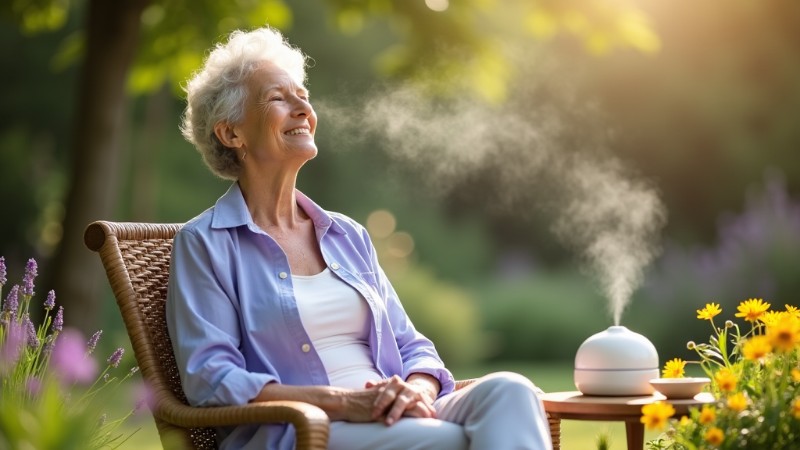In today’s fast-paced and hectic world, prioritizing holistic well-being is essential. Wellness transcends the mere absence of illness; it represents a harmonious state of physical, mental, and emotional balance. As more people seek ways to improve their overall health, alternative therapies and complementary approaches are gaining recognition for their potential benefits. By exploring a variety of wellness practices, individuals can tailor their journeys toward better health and enhance their quality of life.
Key Takeaways
Exploring holistic approaches to wellness through alternative therapies can lead to a more balanced and harmonious state of physical, mental, and emotional well-being.
- Holistic healing emphasizes the interconnectedness of body, mind, and spirit, addressing root causes rather than just alleviating symptoms.
- Incorporating alternative therapies such as Traditional Chinese Medicine (TCM) and Ayurveda can help individuals tailor their wellness journeys to their unique needs.
- Exploring various wellness approaches fosters mindfulness, personal growth, and self-discovery, leading to increased resilience and adaptability in the face of life’s challenges.
The essence of holistic healing
Holistic healing emphasizes the interconnectedness of the body, mind, and spirit. This approach recognizes that imbalances in one area can affect others, making it vital to address root causes rather than just alleviating symptoms. Research suggests that many medical conditions develop over time due to years of suboptimal health, often linked to inflammation and stress. Thus, embracing holistic therapies can prevent chronic issues from escalating.
Incorporating alternative therapies allows individuals to engage in their healing journey actively. Practices such as Traditional Chinese Medicine (TCM) and Ayurveda exemplify this approach by offering frameworks for understanding health through different cultural lenses.
The importance of individual differences
Every person’s wellness journey is unique, influenced by individual differences and circumstances. By exploring a variety of approaches, individuals can discover what resonates with their bodies and minds. This personalized approach ensures a more effective and rewarding path to better health.
Traditional Chinese Medicine (TCM) is one such alternative therapy that has been practiced for thousands of years. TCM operates on the concept of balancing the body’s vital energy, or “Qi,” and the interplay of “Yin” and “Yang.” Acupuncture, a cornerstone of TCM, involves inserting thin needles at specific points on the body. These points correspond to energy channels, or meridians, that facilitate the smooth flow of Qi. By stimulating these points, acupuncturists aim to restore balance and alleviate various health issues.
Understanding holistic approaches
TCM also employs herbal medicine, utilizing a wide range of botanical remedies to address specific imbalances. Herbs are often combined to create custom formulas tailored to an individual’s unique needs, supporting the body’s natural healing processes. Another vital component of TCM is Qi Gong, a meditative practice that combines breath control, gentle movements, and visualization to cultivate and enhance Qi within the body. This ancient technique promotes relaxation, stress reduction, and overall well-being.
Similarly, Ayurveda, which originated in India, is a traditional healing system that categorizes individuals based on three doshas: Vata, Pitta, and Kapha. Understanding one’s dominant dosha, or Prakriti, helps tailor a personalized approach to wellness.
Ayurveda emphasizes the importance of a balanced diet tailored to an individual’s dosha, recommending specific foods, herbs, and spices to maintain equilibrium and promote overall health. The detoxification and rejuvenation process known as Panchakarma is also central to Ayurveda, involving various cleansing therapies to eliminate toxins and restore balance.
The role of mindfulness and personal growth
Engaging in diverse wellness practices often cultivates mindfulness, encouraging individuals to appreciate the present moment. Whether through meditation, yoga, or nature walks, these practices foster an awareness of one’s thoughts and emotions, enhancing overall mental well-being. Learning new wellness practices also fosters personal growth and self-discovery, challenging individuals to step out of their comfort zones and explore new territories in health and wellness.
As life is dynamic, our bodies and minds undergo changes over time. Learning various wellness approaches builds resilience and adaptability, enabling individuals to cope with life’s challenges more effectively. When one method becomes less effective, having alternative practices to rely on can be invaluable.
Building a supportive community
Exploring various wellness approaches can lead to connections with like-minded individuals. Engaging in group activities or classes fosters a sense of community and support, creating an environment for shared growth and encouragement. Additionally, holistic practitioners often collaborate with diverse healthcare providers to create comprehensive treatment plans, further enriching the wellness journey.
For many, accessing a full spectrum of specialized care can be challenging, but seeking local practitioners in complementary therapies can help build a personalized wellness support network. These connections provide emotional support and create opportunities for learning and shared experiences in pursuing health.
Empowerment through knowledge and independence
Knowledge of various wellness practices empowers individuals to take charge of their health and well-being. This empowerment reduces reliance on medical professionals alone, promoting self-care practices that encourage long-term vitality. By adopting a proactive stance toward health, individuals can significantly reduce the risk of developing certain health conditions and promote longevity.
Exploring alternative therapies fosters a sense of independence and encourages individuals to be active participants in their healing journey. This newfound agency leads to increased self-efficacy, allowing individuals to make informed decisions about their health and wellness.
Preventive health care
Many wellness approaches emphasize prevention over treatment. Embracing a preventive mindset can greatly lower the risk of chronic diseases, promoting a healthier, longer life. For example, incorporating lifestyle habits like regular exercise, mindfulness meditation, and a balanced diet can support lasting health benefits.
Additionally, alternative therapies like magnetic therapy are emerging as complementary treatments for various health issues. Magnetic therapy involves applying magnets to specific areas of the body to promote healing and relieve pain. This non-invasive approach is based on the belief that magnetic fields can influence the body’s electromagnetic field, potentially improving blood flow and reducing inflammation.
While considered safe for most individuals, it’s essential to consult with healthcare professionals before trying magnetic therapy, particularly for those with medical implants or during pregnancy.
Enhancing quality of life
Ultimately, the goal of exploring a variety of wellness approaches is to enhance the quality of life. A balanced and integrated approach to well-being contributes to increased energy, improved mood, better sleep, and an overall sense of contentment and fulfillment. By nurturing all aspects of health—physical, mental, and emotional—individuals can achieve a more harmonious existence.
As we navigate our wellness journeys, embracing open-mindedness and curiosity can lead to profound transformations. Experimenting with different therapies, whether through traditional methods like TCM and Ayurveda or modern techniques like mindfulness practices, allows individuals to find what best suits their needs.
A personal journey to wellness
Exploring alternative therapies and complementary approaches for wellness opens a gateway to holistic healing. Each method discussed provides unique insights into nurturing the mind, body, and soul. By incorporating these practices into our lives, we can enhance overall well-being and achieve a harmonious balance.
The journey towards wellness is deeply personal, and what works for one individual may not suit another. Therefore, it is essential to approach wellness with an open heart and mind, encouraging self-exploration and connection with others. By actively engaging in our health journeys, we can pave the way for profound well-being and vitality.
So, as you embark on your exploration of alternative therapies, may you discover new paths to health and happiness that resonate with your unique journey.















